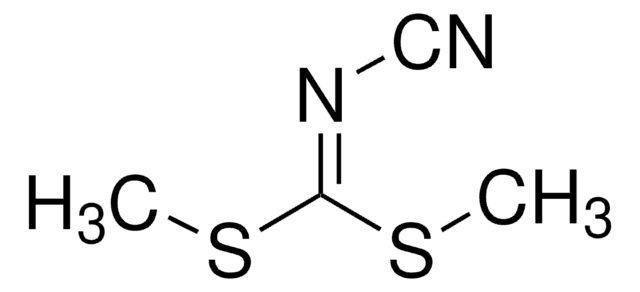283282
Di(propylene glycol) methyl ether, mixture of isomers
97%
Synonym(s):
Dipropylene glycol monomethyl ether
Sign Into View Organizational & Contract Pricing
All Photos(1)
About This Item
Linear Formula:
CH3OC3H6OC3H6OH
CAS Number:
Molecular Weight:
148.20
EC Number:
UNSPSC Code:
12162002
NACRES:
NA.23
Recommended Products
vapor pressure
0.4 mmHg ( 25 °C)
Assay
97%
form
liquid
refractive index
n20/D 1.422 (lit.)
bp
190 °C (lit.)
density
0.938 g/mL at 25 °C
InChI
1S/C7H16O3/c1-6(4-8)10-5-7(2)9-3/h6-8H,4-5H2,1-3H3
InChI key
CUDYYMUUJHLCGZ-UHFFFAOYSA-N
Looking for similar products? Visit Product Comparison Guide
Storage Class Code
10 - Combustible liquids
WGK
WGK 1
Flash Point(F)
167.0 °F - closed cup
Flash Point(C)
75 °C - closed cup
Personal Protective Equipment
dust mask type N95 (US), Eyeshields, Gloves
Choose from one of the most recent versions:
Already Own This Product?
Find documentation for the products that you have recently purchased in the Document Library.
Customers Also Viewed
[Anti-adhesive solutions, better knowledge for better use].
Grégory Gaudillot et al.
Soins; la revue de reference infirmiere, (702)(702), 23-27 (2006-02-25)
S Fairhurst et al.
Toxicology, 57(2), 209-215 (1989-07-17)
The subacute percutaneous toxicity of dipropylene glycol monomethyl ether (DPM) in male rats dosed 5 days/week for 4 weeks under both occluded and unoccluded conditions has been assessed and compared to the percutaneous toxicity of ethylene glycol monomethyl ether (EGM).
Bob Muir et al.
Journal of chromatography. A, 1038(1-2), 183-187 (2004-07-06)
Factorial design (FD) was applied in order to develop an optimised method for the detection of chemical warfare (CW) agent simulant compounds on Porapak Q. Application of FD allowed study of the adsorption/desorption mechanism of analytes. Di(propylene glycol) monomethyl ether
T D Landry et al.
Fundamental and applied toxicology : official journal of the Society of Toxicology, 4(4), 612-617 (1984-08-01)
Fischer 344 rats (10/sex/exposure concentration) and New Zealand White rabbits (7/sex/exposure concentration) were exposed to 0, 15, 50, or 200 ppm (0, 91, 303, or 1212 mg/m3) of dipropylene glycol monomethyl ether (DPGME) for 6 hr/day, 5 days/week for 13
Toshiaki Tsukatani et al.
Chemical senses, 28(1), 25-32 (2002-12-28)
Detection thresholds are typically obtained by presenting a subject with serial dilutions of an odorant. Many factors, including the solvent used to dilute the odorant, can influence the measurement of detection thresholds. Differences have been reported in detection thresholds for
Our team of scientists has experience in all areas of research including Life Science, Material Science, Chemical Synthesis, Chromatography, Analytical and many others.
Contact Technical Service















